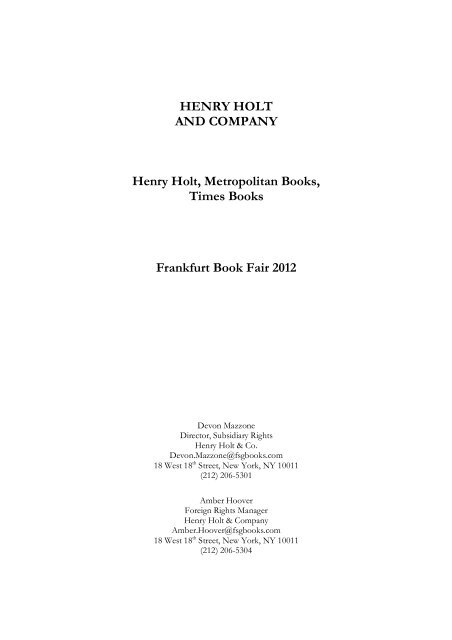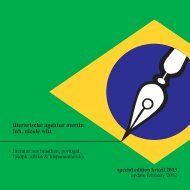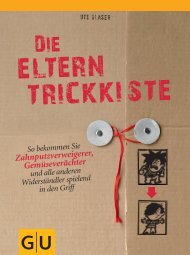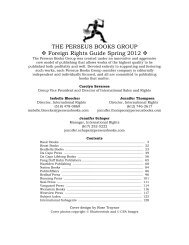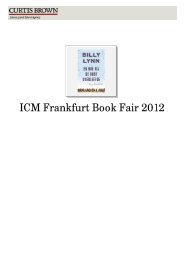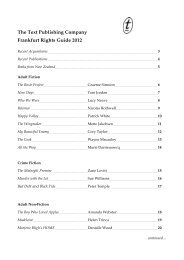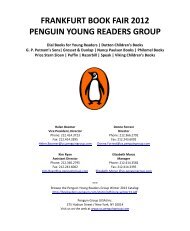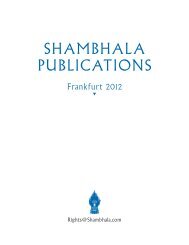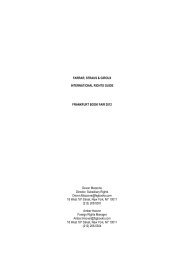HENRY HOLT AND COMPANY Henry Holt, Metropolitan Books ...
HENRY HOLT AND COMPANY Henry Holt, Metropolitan Books ...
HENRY HOLT AND COMPANY Henry Holt, Metropolitan Books ...
Create successful ePaper yourself
Turn your PDF publications into a flip-book with our unique Google optimized e-Paper software.
<strong>HENRY</strong> <strong>HOLT</strong><br />
<strong>AND</strong> <strong>COMPANY</strong><br />
<strong>Henry</strong> <strong>Holt</strong>, <strong>Metropolitan</strong> <strong>Books</strong>,<br />
Times <strong>Books</strong><br />
Frankfurt Book Fair 2012<br />
Devon Mazzone<br />
Director, Subsidiary Rights<br />
<strong>Henry</strong> <strong>Holt</strong> & Co.<br />
Devon.Mazzone@fsgbooks.com<br />
18 West 18 th Street, New York, NY 10011<br />
(212) 206-5301<br />
Amber Hoover<br />
Foreign Rights Manager<br />
<strong>Henry</strong> <strong>Holt</strong> & Company<br />
Amber.Hoover@fsgbooks.com<br />
18 West 18 th Street, New York, NY 10011<br />
(212) 206-5304
<strong>Henry</strong> <strong>Holt</strong> Nonfiction
<strong>Henry</strong> <strong>Holt</strong> Nonfiction<br />
Hali Felt<br />
SOUNDINGS<br />
The Story of the Remarkable Woman Who Mapped the Ocean Floor<br />
Publication: July 2012 <strong>Books</strong> Available<br />
Editor: Gillian Blake Category: Biography<br />
In SOUNDINGS, Hali Felt expertly brings to vivid life the story of<br />
Marie Tharp, a pioneering scientist who literally changed the way we<br />
view the earth. Trained as a geologist, but more important as a<br />
draftsman, Marie took the soundings made by her male colleagues<br />
who sailed on research vessels and set out to map the entire ocean<br />
floor. When Marie undertook her work, “fixists” reigned among<br />
geologists—prevailing thought was that the continents were fixed and<br />
immobile. Marie’s unveiling of the mid-Atlantic ridge led to<br />
revolutionary change in earth science, with her work still studied and<br />
referred to by specialists. John Noble Wilford called her map the first<br />
comprehensive map of the entire ocean floor, “one of the most<br />
remarkable achievements in modern cartography.” Filled with vivid<br />
moments and armed with materials (including private letters, photos,<br />
interviews, personal objects and papers) not available to any other writers, Felt has taken a fresh and<br />
utterly engaging approach to Marie’s story. Featuring a fascinating woman, scientific discovery akin<br />
to a detective story and a monumental act that changed the way we view the world, this story has<br />
something for everyone.<br />
Hali Felt teaches writing at the University of Pittsburgh. She received her MFA from the University<br />
of Iowa and has has reported for the Columbia Journalism Review and the Pittsburgh Tribune-Review. She<br />
currently lives in Pittsburgh.<br />
"Felt’s biography reimagines [Tharp's] progression from a nomadic childhood through scientific<br />
breakthroughs with a vivid, poetic touch, revealing an idiosyncratic and determined woman whose<br />
'vigorous creativity' advanced everyone’s career but her own.” – Publishers Weekly<br />
British: <strong>Henry</strong> <strong>Holt</strong><br />
Translation: <strong>Henry</strong> <strong>Holt</strong>
<strong>Henry</strong> <strong>Holt</strong> Nonfiction<br />
Taras Grescoe<br />
STRAPHANGER<br />
Saving Our Cities and Ourselves from the Automobile<br />
Publication: April 2012 <strong>Books</strong> Available<br />
Editor: Gillian Blake Category: Current Events<br />
"I am proud to call myself a straphanger," writes Taras Grescoe. The<br />
perception of public transportation in America is often unflattering—<br />
a squalid last resort for those with one too many drunk-driving<br />
charges, too poor to afford insurance, or too decrepit to get behind<br />
the wheel of a car. Indeed, a century of auto-centric culture and city<br />
planning has left most of the country with public transportation that<br />
is underfunded, ill maintained, and ill conceived. But as the demand<br />
for petroleum is fast outpacing the world's supply, a revolution in<br />
transportation is under way.<br />
Grescoe explores the ascendance of the straphangers—the growing<br />
number of people who rely on public transportation to go about the<br />
business of their daily lives. On a journey that takes him around the<br />
world—from New York to Moscow, Paris, Copenhagen, Tokyo,<br />
Bogotá, Phoenix, Portland, Vancouver, and Philadelphia—Grescoe<br />
profiles public transportation here and abroad, highlighting the people and ideas that may help undo<br />
the damage that car-centric planning has done to our cities and create convenient, affordable, and<br />
sustainable urban transportation—and better city living—for all.<br />
Taras Grescoe is the award-winning author of four books and countless articles focusing on world<br />
travel. He's written for The New York Times, The Times (London), Wired, the Chicago Tribune Magazine,<br />
and The Los Angeles Times. He currently lives in Montreal. He has never owned a car.<br />
All the cities we admire most in the world--the places young people want to live--boast great public<br />
transit systems or are in the process of building them. As this splendid account makes clear, a car<br />
isn't liberation: not needing a car is liberation!” - Bill McKibben, author Eaarth: Making a Life on<br />
a Tough New Planet<br />
"Grescoe presents a strong and timely argument for moving metropolitan motorists away from their<br />
cars." – PublishersWeekly<br />
[Straphanger] is rife with bits of interesting trivia, and it almost reads like a travelogue as the author<br />
revels in the wonders of his diverse destinations. With a smooth, accessible narrative style…each<br />
chapter is packed with important information… A captivating, convincing case for car-free—or at<br />
least car-reduced—cities.” – Kirkus<br />
British: <strong>Henry</strong> <strong>Holt</strong><br />
Translation: <strong>Henry</strong> <strong>Holt</strong><br />
Rights sold: Arabic / Arab Scientific Publishers, Chinese (Complex) / China Times Publishing
<strong>Henry</strong> <strong>Holt</strong> Nonfiction<br />
Bob Mankoff<br />
HOW ABOUT NEVER…IS NEVER GOOD FOR YOU?<br />
Publication: October 2013 Material available: Partial manuscript<br />
Editor: Gillian Blake Category: Memoir<br />
Bob Mankoff, cartoon editor at The New<br />
Yorker for the past fifteen years, established<br />
himself in the cartoon lexicon hall of fame with<br />
one simple cartoon. It featured a drawing of a<br />
businessman on the phone, looking at his<br />
datebook. His words: “No, Thursday’s out.<br />
How about never—is never good for you?” This<br />
cartoon landed him lasting fame in the Yale<br />
Book of Quotations.<br />
HOW ABOUT NEVER is a unique memoir<br />
in words, cartoons, and assorted imagery encompassing the author's childhood and career as a<br />
cartoonist. Mankoff will examine the art and psychology of humor looking at how humor has<br />
changed over the years and how that factors in to their decisions at the New Yorker and in his own<br />
drawings.<br />
As cartoon editor, Bob Mankoff has not only unearthed some of the best cartoonists at work today,<br />
but has also expanded The New Yorker’s reach to include an annual cartoon issue, the incredibly<br />
popular caption contest, and animated versions of the cartoons. The book will include over 100 of<br />
his cartoons spanning his thirty year career.<br />
British: <strong>Henry</strong> <strong>Holt</strong><br />
Translation: <strong>Henry</strong> <strong>Holt</strong>
<strong>Henry</strong> <strong>Holt</strong> Nonfiction<br />
Rick Atkinson<br />
THE GUNS AT LAST LIGHT<br />
The War in Western Europe, 1944-1945<br />
Publication: May 2013 Manuscript available<br />
Editor: John Sterling<br />
It is the twentieth century’s unrivaled epic: at a staggering price, the United States and its allies<br />
vanquished Hitler and liberated Europe. In the first two volumes of his bestselling Liberation Trilogy,<br />
Rick Atkinson recounted the history of how the American-led coalition fought its way from North<br />
Africa and Italy to the threshold of victory. Now he tells the most dramatic story of all—the titanic<br />
battle in Western Europe.<br />
D-Day marked the commencement of the war’s final campaign, and Atkinson’s astonishingly fresh<br />
account of that enormous gamble sets the pace for the masterly narrative that follows. The brutal<br />
fight in Normandy, the liberation of Paris, the disaster that was Market Garden, the horrific Battle of<br />
the Bulge, and finally the thrust to the heart of the Third Reich—all these historic moments come<br />
utterly alive. Atkinson tells the tale from the perspective of participants at every level, from<br />
presidents and prime ministers to ambitious generals, from war-weary lieutenants to terrified teenage<br />
riflemen. When the enemy at last surrenders, we understand anew both the devastating cost of this<br />
global conflagration and the awe-inspiring effort that led to Germany’s defeat.<br />
With the stirring final volume of this monumental trilogy, Rick Atkinson’s remarkable<br />
accomplishment is manifest. He has produced the definitive chronicle of the war that restored<br />
freedom to the West.<br />
Rick Atkinson was a staff writer and senior editor at The Washington Post for twenty-five years. He<br />
is the bestselling author of An Army at Dawn—winner of the Pulitzer Prize for history—The Day of<br />
Battle, The Long Gray Line, In the Company of Soldiers, and Crusade. His many other awards include two<br />
Pulitzer Prizes for journalism, the George Polk award, and the Pritzker Military Library Literature<br />
Award. He and his wife live in Washington, D.C.<br />
Praise for The Day of Battle<br />
“The majestic sequel to his Pulitzer Prize-winning An Army at Dawn … Atkinson’s achievement is to<br />
marry prodigious research with a superbly organized narrative and then to overlay the whole with<br />
writing as powerful and elegant as any great narrative of war.” —The Wall Street Journal<br />
“A triumph of narrative history, elegantly written, thick with unforgettable description and rooted in<br />
the sight and sounds of battle.”—The New York Times<br />
British: Little, Brown UK<br />
Translation: <strong>Henry</strong> <strong>Holt</strong><br />
Rights sold: Dutch / Mynx, Italian / Mondadori<br />
Rights sold, AN ARMY AT DAWN: Czech / BB/Art, Hungarian / Gabo Kiado Kft., Polish /<br />
Bellona Publishing House, Romanian / Editura Tritonic, Spanish / Editoria Critica
<strong>Henry</strong> <strong>Holt</strong> Nonfiction<br />
Abraham Morgentaler<br />
WHY MEN FAKE IT<br />
The Truth About Men and Sex<br />
Publication: April 2013 Manuscript available<br />
Editor: Joanna Levine Category: Health<br />
We live in a world filled with sexual imagery and information. At the<br />
grocery check-out aisle Cosmo informs us about “Seven Sure-Fire<br />
Ways to Achieve an Orgasm.” The internet readily provides images<br />
and videos of every sexual fetish imaginable, and even the Kama Sutra<br />
is now available online. Yet we seem to know nothing about sex that<br />
really matters, especially when it comes to men.<br />
In his book, Abraham Morgentaler, Director of Men’s Health Boston,<br />
examines various male sexual issues--penis size, erectile dysfunction,<br />
premature ejaculation, diminished sex drive—through medical<br />
research illustrated by stories from his own private practice. The<br />
stories range from the more common experiences—a man whose<br />
erection is no longer adequate for intercourse, to the more unusual—a<br />
man who fakes his orgasms.<br />
The lack of intelligent discussion regarding men and sexuality has numerous consequences. We<br />
have such little sense of what is normal and what is to be expected that we feel alone and uncertain,<br />
prey to thoughts and fears that can be damaging to our health and relationships. Morgentaler’s book<br />
will do for male sexuality what Terry Real’s I Don’t Want to Talk About It did for male depression.<br />
Dr. Morgentaler, the Director of Men’s Health Boston, is an Associate Clinical Professor of<br />
Urology at Harvard Medical School, Beth Israel Deaconess Medical Center. Dr. Morgentaler is a<br />
regular contributor to television and radio shows addressing male issues, and has appeared on NBC<br />
Nightly News, CBS Evening News, CNN with Anderson Cooper, and The Connection on NPR. Dr.<br />
Morgentaler and his clinical work with testosterone were featured in The New Yorker, and his<br />
comments have been published in journals such as Newsweek and US News and World Report. He<br />
is the author of The Viagra Myth: The Surprising Impact on Love and Relationships, Male Body: A Physician's<br />
Guide to What Every Man Should Know About His Sexual Health and Testosterone for Life: Recharge Your<br />
Vitality, Sex Drive, Muscle Mass, and Overall Health.<br />
British: <strong>Henry</strong> <strong>Holt</strong><br />
Translation: <strong>Henry</strong> <strong>Holt</strong>
<strong>Henry</strong> <strong>Holt</strong> Nonfiction<br />
Bill O’Reilly<br />
and Martin Dugard<br />
KILLING KENNEDY<br />
The End of Camelot<br />
Publication: October 2012 <strong>Books</strong> available<br />
Editor: Gillian Blake Category: History<br />
More than a million readers have thrilled to Bill O'Reilly's Killing<br />
Lincoln, the page-turning work of nonfiction about the shocking<br />
assassination that changed the course of American history. Now the<br />
anchor of The O'Reilly Factor recounts in gripping detail the brutal<br />
murder of John Fitzgerald Kennedy—and how a sequence of<br />
gunshots on a Dallas afternoon not only killed a beloved president but<br />
also sent the nation into the cataclysmic division of the Vietnam War<br />
and its culture-changing aftermath.<br />
In January 1961, as the Cold War escalates, John F. Kennedy struggles<br />
to contain the growth of Communism while he learns the hardships,<br />
solitude, and temptations of what it means to be president of the<br />
United States. Along the way he acquires a number of formidable<br />
enemies, among them Soviet leader Nikita Khrushchev, Cuban dictator Fidel Castro, and Alan Dulles,<br />
director of the Central Intelligence Agency. In addition, powerful elements of organized crime have<br />
begun to talk about targeting the president and his brother, Attorney General Robert Kennedy.<br />
In the midst of a 1963 campaign trip to Texas, Kennedy is gunned down by an erratic young drifter<br />
named Lee Harvey Oswald. The former Marine Corps sharpshooter escapes the scene, only to be<br />
caught and shot dead while in police custody. The events leading up to the most notorious crime of<br />
the twentieth century are almost as shocking as the assassination itself.<br />
KILLING KENNEDY chronicles both the heroism and deceit of Camelot, bringing history to life<br />
in ways that will profoundly move the reader. This may well be the most talked about book of the<br />
year.<br />
KILLING LINCOLN has sold over 2 million copies<br />
British: Macmillan UK<br />
Translation: <strong>Henry</strong> <strong>Holt</strong><br />
Rights sold: Dutch / Nieuw Amsterdam, German / Droemer, Portuguese (Brazil) / L&PM<br />
Options: China / Changjiang Literature and Art Press, Portugal / Texto, Spain / La Esfera de los<br />
Libros
<strong>Henry</strong> <strong>Holt</strong> Nonfiction<br />
Billy Crystal<br />
UNTITLED MEMOIR ON TURNING 65<br />
Publication: May 2013 Manuscript available: December 2012<br />
Editor: Gillian Blake<br />
Legendary comedian and actor Billy Crystal brings his trademark<br />
humor to the aging process in this memoir about growing older and<br />
reaching a milestone. <strong>Holt</strong> will publish next spring, timed to coincide<br />
with Crystal’s sixty-fifth birthday. It will be a comedic look at aging<br />
and what to expect as we get older, as well as a reflection on Crystal’s<br />
long career, and the milestones of his life as a son, father, and<br />
grandfather. Crystal is widely known and much beloved for his film<br />
roles in “When Harry Met Sally…,” “City Slickers,” and “The Princess<br />
Bride,” and for his multiple Academy Awards host appearances. The<br />
book will be exactly what you’d expect from him--very funny, but also<br />
touching, and sure to resonate with baby boomers throughout the<br />
world.<br />
Billy Crystal was born on March 14, 1948. He grew up in Long Beach, New York. He graduated<br />
from New York University with a BFA from the Tisch School of Arts in 1970. His breakthrough<br />
role was on the nighttime series “Soap” from 1977 to 1981. In 1984 he hosted “Saturday Night Live”<br />
and then joined the cast. His most famous creation was Fernando, a talk-show host with the tagline<br />
“You look mahvelous!” His film career includes “This Is Spinal Tap” (1984), “Running Scared” (1986),<br />
“Throw Momma from the Train” (1987), “Forget Paris” (1995) and “Monsters, Inc.” (2001). He<br />
directed the HBO film “*61*” (2001) about the race between Mickey Mantle and Roger Maris to<br />
break Babe Ruth’s single-season home-run record. He is the recipient of the 2007 Mark Twain Prize<br />
for American Humor. His previous books include “Absolutely Marvelous” (1986), “700 Sundays”<br />
(2005) and two children’s books, “I Already Know I Love You” (2004) and “Grandpa’s Little One”<br />
(2006). Crystal is well known for hosting the Oscars® a total of nine times; he has also hosted the<br />
Grammy Awards three times and, as a result of his work in television, has won six Emmy Awards.<br />
He will next be seen starring alongside Bette Midler in the family comedy “Parental Guidance,”<br />
coming out Christmas 2012. He will also reprise his role as Mike Wazowski in “Monsters<br />
University,” the prequel to “Monsters, Inc.,” to be released in 2013.<br />
British: <strong>Henry</strong> <strong>Holt</strong><br />
Translation: <strong>Henry</strong> <strong>Holt</strong>
<strong>Henry</strong> <strong>Holt</strong> Fiction
<strong>Henry</strong> <strong>Holt</strong> Fiction<br />
Gerry FitzGerald<br />
REDEMPTION MOUNTAIN<br />
Publication: June 2013 Manuscript available<br />
Editor: Steve Rubin / Phyllis Grann<br />
For the last 25 years, Charlie Burden has been driven to succeed – to<br />
provide a secure future for his family. At 48, Charlie now faces a<br />
present he no longer understands. Painful crevasses have opened up<br />
in his marriage as his children, right on time, have moved on to their<br />
own lives. And Charlie, who has scrapped his way to a top position at<br />
a global engineering firm, finds his work – reviewing spreadsheets and<br />
sitting in boardrooms – much less satisfying than the projects he<br />
undertook as an engineer – building things he could touch, and adding<br />
value he could see.<br />
In her early 30’s, Natty Oakes is running for her life. Her favorite<br />
jogging trail cuts a path around Angel Mountain, where her family has<br />
eked out a living for generations. A self-effacing woman who coaches<br />
a youth soccer team and cares for the elderly, Natty is the mother of<br />
two, including a 12-year-old son with Down Syndrome. It is Natty’s son, nicknamed “the Pie Man,”<br />
who brings Charlie and Natty together and, with a rich cast of characters, helps Charlie remember<br />
who he is and what’s most important in life.<br />
Gerry Fitzgerald has been in advertising for nearly 30 years and owns an advertising agency in<br />
Springfield, Massachusetts. He holds a master’s in journalism from the Medill School at<br />
Northwestern University and is a graduate of the University of Massachusetts at Amherst. He lives in<br />
East Longmeadow, MA with his wife Robin, and his two college-aged children. This is his first novel.<br />
British: <strong>Henry</strong> <strong>Holt</strong><br />
Translation: <strong>Henry</strong> <strong>Holt</strong>
<strong>Henry</strong> <strong>Holt</strong> Fiction<br />
Magdalena Zyzak<br />
THE BALLAD OF BARNABAS PIERKIEL<br />
Publication: January 2014 Manuscript available: January 2013<br />
Editor: Sarah Bowlin<br />
THE BALLAD OF BARNABAS PIERKIEL, part picaresque<br />
parody, part bawdy folk tale, is a wickedly funny, yet ominous tale set<br />
in an imaginary Slavic village in 1939.<br />
Barnabas is a bumbling pig herder with romantic delusions of<br />
grandeur. Desperate to attract the voluptuous Roosha, Barnabas gets<br />
caught up in a series of scandals and misadventures, mostly because<br />
he is too clumsy to do otherwise. Zyzak’s wonderfully eccentric<br />
supporting cast includes a suicidal priest haunted by the devil, a<br />
teenage gypsy with mysterious powers, and a dim-witted vagabond<br />
with a goat for a wife, just to name a few. Zyzak is wonderful at<br />
portraying a range of oddball characters. But it is not all humor. After<br />
all, it is 1939 in Eastern Europe. A prophet proclaims that war looms. After the hoodlums attack,<br />
Barnabas shelters some gypsies and finds himself ostracized from society. Most in the village feel the<br />
gypsies are the cause their woe.<br />
Although the narrator maintains an ironic and often mocking distance from these characters, in the<br />
end Zyzak’s humor isn’t so much searing or judgmental as it is delighting in the absurdity of the<br />
human plight. Zyzak is a bright new talent. Her language is lush, vivid, and entirely fresh. Zyzak<br />
should be considered in the same breath as Téa Obreht, Ramona Ausubel, and, of course, Gary<br />
Shteyngart.<br />
Magdalena Zyzak is the twenty-six-year-old Polish born screenwriter of Redland. This is her first<br />
novel.<br />
“Make way for Magdalena Zyzak! She writes in a way that is uniquely her own and she approaches<br />
the English language with the joy and reverence of her countryman Joseph Conrad.” – Gary<br />
Shteyngart<br />
British: <strong>Henry</strong> <strong>Holt</strong><br />
Translation: <strong>Henry</strong> <strong>Holt</strong>
<strong>Henry</strong> <strong>Holt</strong> Fiction<br />
Betsy Woodman<br />
JANA BIBI’S EXCELLENT FORTUNES<br />
Publication: July 2012 <strong>Books</strong> available<br />
Editor: Joanna Levine<br />
In the first of a charming series, we meet Jana Bibi who has inherited<br />
her grandfather’s house in India. Eschewing the norms of her uppercrust<br />
upbringing, she moves with her chatty parrot, Mr. Ganguly, and<br />
her loyal housekeeper, Mary, to a town where the local merchants are<br />
philosophers, the chief of police is a tyrant, and a bagpipe-playing<br />
Gurkha keeps the wild monkeys at bay. Settling in, Jana meets all the<br />
colorful local characters who gather at the Why Not? tea shop-- her<br />
neighbor, Feroze Ali Khan of Royal Tailors, who struggles with his<br />
business and family, V.K. Ramachandran whose Treasure Emporium<br />
is bursting at the seams with objects of unknown provenance, and<br />
Rambir, editor of the local newspaper, who burns the midnight oil at<br />
his printing press.<br />
When word gets out that Hamara Nagar is in danger of being<br />
drowned by a government dam, Jana is enlisted to help put the town<br />
on the map. Hoping to attract tourists with promises of good things<br />
to come, she stacks her deck of cards, readies her fine-feathered assistant, and Jana Bibi's Excellent<br />
Fortunes is born.<br />
Betsy Woodman spent ten childhood years in India, studied in France, Zambia, and the United<br />
States, and now lives in her native New Hampshire. She has contributed nonfiction pieces and<br />
several hundred book reviews to various publications, and was writer/editor for the award-winning<br />
Public Radio International documentary series, Experiencing War.<br />
“What a charming, engaging, and utterly delightful novel! It takes a writer of enormous talent and<br />
heart, to say nothing of spiritual depth, to give us a life-affirming story such as this. I am already<br />
impatient to get the next Jana Bibi book, because reading this novel put me in such a good mood…I<br />
might have a t-shirt made up that says, Fire your therapist. Read Betsy Woodman.” – Elizabeth Berg,<br />
author of Once Upon a Time There Was You and The Day I Ate Whatever I Wanted<br />
“As if discovered in the library of an old country inn on a dark and rainy day, Jana Bibi’s Excellent<br />
Fortunes unfolds like an unexpected gift from another time." – Diane Meier, author of The<br />
Season of Second Chances<br />
British: <strong>Henry</strong> <strong>Holt</strong><br />
Translation: <strong>Henry</strong> <strong>Holt</strong><br />
Rights sold: India / Random House India
<strong>Henry</strong> <strong>Holt</strong> Fiction<br />
Betsy Woodman<br />
LOVE POTION NUMBER 10<br />
A Jana Bibi Adventure<br />
Publication: May 2013 Manuscript available<br />
Editor: Joanna Levine<br />
The Jolly Grant House still welcomes all its visitors with the sign: Jana Bibi’s Excellent Fortunes hanging<br />
proudly outside its front door. Jana’s fortune-telling has brought a lot of attention to the small town<br />
of Hamara Nagar, and now that the dust has settled and the town is safe from the threat of being<br />
drowned by a government dam, all eyes are on the Scottish-born card-reader, Jana, and her feisty,<br />
loose-beaked parrot, Mr. Ganguly. Some of these eyes, though, are not to be trusted and Mr.<br />
Ganguly finds himself the target of a potential kidnapping that puts Jana and her household on edge.<br />
Meanwhile, love is in the air and, thanks to Abenath’s Apothecary, it’s also in a bottle. He has created<br />
an intoxicating brew that he calls Love Potion Number 10 that seems to have Jana’s head in a tizzy.<br />
While she explores her newest hobby, dream interpretation, her head is swimming with questions: Is<br />
a new love possible at age 59? If so, would she ever marry again? All around her she’s seeing different<br />
kinds of love and connection—family, arranged marriages, chemical attractions, even intercontinental<br />
romance between people who have only met via mail—so when an old flame arrives and rekindles<br />
long gone feelings, Jana begins to think that that Love Potion Number 10 just might be the magic<br />
elixir its inventor thinks it is.<br />
British: <strong>Henry</strong> <strong>Holt</strong><br />
Translation: <strong>Henry</strong> <strong>Holt</strong><br />
Rights sold: India / Random House India
<strong>Henry</strong> <strong>Holt</strong> Fiction<br />
Ted Kosmatka<br />
THE PROPHET OF BONES<br />
Publication: April 2013 Galleys available<br />
Editor: Aaron Schlechter<br />
THE PROPHET OF BONES is set in present day. But it is a<br />
present day in which Darwin’s theory of evolution has fallen out of<br />
favor with the scientific community as carbon dating confirmed once<br />
and for all that the Earth was only 5,800 years old. Creationism is<br />
taught in primary schools.<br />
Paul Carlson, a brilliant young archaeologist, is dispatched to the<br />
Indonesian island of Flores to take DNA samples from the bones of a<br />
strange, new species of tool user—a species nicknamed “the hobbit.”<br />
All agree that as God made Man in his image this is a species that<br />
shouldn’t exist. In a world where science exists in parity with religion,<br />
the repercussions of Paul’s discovery threaten to rip into the very<br />
fabric of society. The status quo, in the form of the word’s<br />
governments and Martial Johnston, the eccentric billionaire who<br />
financed Paul’s dig, will stop at nothing to stop Paul as he flees<br />
Indonesia armed with little more than his wits, struggling to unite the pieces of the puzzle he has<br />
uncovered.<br />
As action-packed and fast-paced as it is unique, THE PROPHET OF BONES introduces the<br />
thriller world both to a spectacular new talent in Ted Kosmatka and a unique and complicated hero<br />
in Paul Carlson.<br />
Ted Kosmatka’s first novel, The Games, was published by Del-Rey . His short fiction has been<br />
nominated for both the Nebula Award and the Theodore Sturgeon Memorial Award, and appeared<br />
in numerous Year’s Best collections. He now works in the videogame industry, where he’s a full-time<br />
writer at Valve, home of Half-Life, Portal and Dota 2.<br />
Advance praise for THE PROPHET OF BONES :<br />
“Some good writers are not good storytellers and some good storytellers are not good writer.<br />
Fortunately for all of us, Ted Kosmatka is both an excellent writer and a hell of a storyteller… Prophet<br />
of Bones is truly hard to put down. This is what a novel is about.”—Nelson DeMille<br />
“A masterwork of intrigue and menace. I couldn't put Prophet of Bones down until I reached the<br />
climax… An eye-opening and page-turning read without parallel.”—Clive Cussler<br />
British: Michael Joseph<br />
Translation: <strong>Henry</strong> <strong>Holt</strong><br />
Rights sold: German / Blanvalet, Italian / Rizzoli, Japanese / Hayakawa
<strong>Metropolitan</strong> <strong>Books</strong>
<strong>Metropolitan</strong> <strong>Books</strong><br />
Noam Chomsky and David Barsamian<br />
POWER SYSTEMS<br />
Conversations on Global Democratic Uprisings and the New Challenges to U.S.<br />
Empire<br />
Publication: January 2013 Manuscript available<br />
Editor: Sara Bershtel<br />
In this new collection of conversations, conducted from 2010 to 2012,<br />
Noam Chomsky explores the most immediate and urgent concerns:<br />
the future of democracy in the Arab world, the implications of the<br />
Fukushima nuclear disaster, the "class war" fought by U.S. business<br />
interests against working people and the poor, the Occupy movement<br />
across the country, the breakdown of American mainstream political<br />
institutions and the rise of the far right. As always, Chomsky presents<br />
his ideas vividly and accessibly, with uncompromising principle and<br />
clarifying insight.<br />
The latest volume from a long-established, trusted partnership, this<br />
collection shows once again that no interlocutor engages with<br />
Chomsky more effectively than David Barsamian. These interviews<br />
will inspire a new generation of readers, as well as longtime Chomsky<br />
fans eager for his latest thinking on the many crises we now confront, both at home and abroad.<br />
They confirm that Chomsky is an unparalleled resource for anyone seeking to understand our world<br />
today.<br />
Noam Chomsky is the author of numerous bestselling political works, including Hegemony or Survival<br />
and Failed States. A professor of linguistics and philosophy at MIT, he is widely credited with having<br />
revolutionized modern linguistics. He lives outside Boston, Massachusetts.<br />
David Barsamian, director of the award-winning and widely syndicated Alternative Radio, is the<br />
winner of the Lannan Foundation’s 2006 Cultural Freedom Fellowship and the ACLU’s Upton<br />
Sinclair Award for independent journalism. Barsamian lives in Boulder, Colorado.<br />
British: Hamish Hamilton<br />
Translation: <strong>Henry</strong> <strong>Holt</strong><br />
Rights sold: Croatian / Naklada Ljevak<br />
Rights sold, What We Say Goes (interviews): Arabic/Dar Al Kitab, Australia/New Zealand/Allen &<br />
Unwin, British/Penguin UK, Bulgarian/Bard, Chinese (Complex)/Goodness Publishing House,<br />
Chinese (Simplified)/CITIC, Finnish/Finnish Peace Committee, French/Editions Fayard,<br />
Greek/Patakis, Italian/RCS Libri, Japanese/NTT Publishing Co., Korean/Window of Times<br />
Publishing Company, Romanian/Editura Antet, Slovak/VSSS, Spanish/Grup Editorial 62
<strong>Metropolitan</strong> <strong>Books</strong><br />
Breaking the Silence<br />
OUR HARSH LOGIC<br />
Israeli Soldiers’ Testimonies from the Occupied Territories, 2000-2010<br />
Publication: September 2012 <strong>Books</strong> Available<br />
Editor: Riva Hocherman<br />
Originally published in Hebrew and English in Israel only under the<br />
title Occupied Territories, this explosive book unearths the oral stories of<br />
the Israel Defense Forces (IDF). Collected by the NGO “Breaking<br />
the Silence,” a group of veterans of the Israeli army, the testimonials<br />
document the daily miseries of the occupation. Many of the soldiers<br />
were shocked by what they saw and experienced while others seem<br />
emotionally void, desensitized by their daily tasks. The book unveils<br />
the gap between the reality which the soldiers encounter in the<br />
occupied territories and the silence they encounter at home. By<br />
publishing soldiers' accounts, Breaking the Silence hopes to "force<br />
Israeli society to address the reality which it created" and face the truth<br />
about "abuse towards Palestinians, looting, and destruction of<br />
property" that is familiar to soldiers. A deeply important book, OUR<br />
HARSH LOGIC has been called “one of the most important (books)<br />
published on Israel/Palestine in this generation” by David Shulman in the New York Review of<br />
<strong>Books</strong>.<br />
Breaking the Silence, one of Israel's most internationally lauded NGOs, was established in<br />
Jerusalem in 2004 by Israel Defense Forces veterans to document the testimonies of Israeli soldiers<br />
who have served in the occupied territories.<br />
“To understand the issue more deeply, it’s crucial to see what the occupation really means on the<br />
ground—and, apart from actually spending time in the occupied territories, there is no better way to<br />
understand this reality than to read the volume of soldiers’ testimonies just published by the Israeli<br />
peace group known as Breaking the Silence, a book, in my view, that is one of the most important<br />
published on Israel/Palestine in this generation.” – David Shulman, New York Review of <strong>Books</strong><br />
British: <strong>Henry</strong> <strong>Holt</strong><br />
Translation: <strong>Henry</strong> <strong>Holt</strong><br />
Rights sold: Australia/New Zealand / Scribe Publications, Dutch / De Arbeiderspers,<br />
French / Autrement, German / Ullstein, Swedish / Leopard Forlag
<strong>Metropolitan</strong> <strong>Books</strong><br />
Eve Ensler<br />
IN THE BODY OF THE WORLD<br />
Publication: April 2013 Manuscript available<br />
Editor: Sara Bershtel<br />
Playwright, author, and activist Eve Ensler has devoted her life to thinking about the female body—<br />
how to talk about it, how to protect and value it. Yet as she recounts in this inspiring and lyrical<br />
memoir, she spent much of her life disassociated from her own body—a disconnection first brought<br />
on by her father’s battering and sexual abuse and her mother’s remoteness, and by her later exploits<br />
with drugs, alcohol, and promiscuous sex. Her body was a machine to be mastered; she lived in her<br />
head, estranged from her physical self and from nature. “Because I did not, could not inhabit my<br />
body or the earth,” she writes, “I could not feel or know their pain.”<br />
But Ensler is shocked out of her distance. On a trip to the Congo, she is shattered to encounter the<br />
horrific rape and violence inflicted on the women. Soon after, she is diagnosed with uterine cancer,<br />
and through months of harrowing treatment, she is forced to become first and foremost a body—<br />
pricked, punctured, cut, scanned. It is then that all distance is erased. As she connects her own illness<br />
to the devastation of the earth, her life force to the resilience of humanity, she is finally, fully--and<br />
gratefully--joined to the body of the world.<br />
Unflinching, at once intensely physical and profoundly spiritual, Ensler’s transformative work calls<br />
on us all at last to embody our elemental connection to and responsibility for the world.<br />
Eve Ensler is an internationally bestselling author and an acclaimed playwright whose works for the<br />
stage include The Vagina Monologues, Necessary Targets, and The Good Body. She is the author of<br />
Insecure at Last, a political memoir, and I Am An Emotional Creature (2010) which was a NYT<br />
bestseller. Ensler is the founder of V-Day, the global movement to end violence against women and<br />
girls which has raised more than $85 million since 1989. Eve Ensler lives in Paris and New York City.<br />
British: <strong>Henry</strong> <strong>Holt</strong><br />
Translation: <strong>Henry</strong> <strong>Holt</strong><br />
Rights sold, I Am an Emotional Creature: Bulgarian/Soft Press, Czech/Prah s.r.o., French/10/18,<br />
Hungarian/Nyitott Konyvmuhely, Korean/Minumin, Italian/Edizioni Piemme,<br />
Portuguese/Publicacoes Europa-America, Slovack/Gnostica d.o.o, Spanish/Editorial Oceano,<br />
Russian/Centrepolygraph, Turkish/Inkilap Kitavevi
<strong>Metropolitan</strong> <strong>Books</strong><br />
Flynt and Hillary Mann Leverett<br />
GOING TO TEHRAN<br />
Why the United States Must Come to Terms with the Islamic Republic<br />
of Iran<br />
Publication: January 2013 Galleys available<br />
Editor: Sara Bershtel Category: Political Science<br />
Less than a decade after Washington endorsed a fraudulent case for<br />
invading Iraq, similarly misinformed and politically motivated claims<br />
are pushing America toward war with Iran. Today the stakes are even<br />
higher: such a war could break the back of America’s strained<br />
superpower status. Challenging the daily clamor of U.S. saber-rattling,<br />
Flynt and Hillary Mann Leverett argue that America should renounce<br />
30 years of failed strategy and come to terms with Iran--just as Nixon<br />
revolutionized U.S. foreign policy by going to Beijing, realigning<br />
relations with China.<br />
Former analysts in both the Bush and Clinton administrations, the<br />
Leveretts offer a uniquely informed account of Iran as it actually is<br />
today, not as many have caricatured it or wished it to be. They show<br />
that Iran’s political order is not on the verge of collapse, that most<br />
Iranians still support the Islamic Republic, and that Iran’s regional influence makes it critical to<br />
progress in the Middle East. Drawing on years of research and access to high-level officials, GOING<br />
TO TEHRAN explains how Iran sees the world and why its approach to foreign policy is hardly the<br />
irrational behavior of a rogue nation.<br />
A bold call for engagement, the Leveretts’ indispensable work makes it clear that America must “go<br />
to Tehran” if it is to avert strategic catastrophe.<br />
Flynt and Hillary Mann Leverett are two of America's most renowned Middle East analysts. They<br />
have served in senior positions at the National Security Council and the State Department, and<br />
currently teach international relations at Yale University. Flynt Leverett also directs the New America<br />
Foundation's Iran Initiative. Their writing has appeared in the New York Times, Politico, Foreign Policy,<br />
and Washington Monthly, among other publications. They live in northern Virginia.<br />
“The substance of the debate over Iran is what we should think of Hillary and Flynt Leverett.” –<br />
The Economist<br />
British: <strong>Henry</strong> <strong>Holt</strong><br />
Translation: <strong>Henry</strong> <strong>Holt</strong>
<strong>Metropolitan</strong> <strong>Books</strong><br />
Nick Turse<br />
KILL ANYTHING THAT MOVES<br />
The Real American War in Vietnam<br />
Publication: January 2013 Galleys available<br />
Editor: Sara Bershtel Category: History<br />
Americans have long been taught that events such as the notorious<br />
My Lai massacre were "isolated incidents" carried out by "a few bad<br />
apples." However, as award-winning journalist and historian Nick<br />
Turse demonstrates in this groundbreaking investigation, violence<br />
against Vietnamese civilians was not at all exceptional but was<br />
pervasive and systematic, the predictable consequence of orders to<br />
"kill anything that moves."<br />
Based on his decade long plunge into secret Pentagon files and<br />
extensive interviews with American veterans and Vietnamese<br />
survivors, Turse for the first time reveals the policies and actions that<br />
resulted in two million killed and five million wounded. He lays out in<br />
shocking detail the workings of a military machine that made crimes<br />
in almost every American unit all but inevitable. Turse's account<br />
moves from archives filled with Washington's suppressed war-crimes<br />
investigations to the rural Vietnamese hamlets that bore the brunt of the war; from boot camps<br />
where nervous young American soldiers learned to hate Vietnamese to bloodthirsty operations like<br />
"Speedy Express" in which a general obsessed with body counts led soldiers to commit what one<br />
participant called "a My Lai a month." Indeed, American violence against civilians was no isolated<br />
incident of troops gone berserk but rather the product of carefully chosen policies, issued by<br />
American officers and drilled into the troops to become an accepted fact of war.<br />
Thousands of Vietnam books later, KILL ANYTHING THAT MOVES, devastating and<br />
definitive, brings us face-to-face with the truth of a war that haunts Americans to this day.<br />
Nick Turse is the author of The Complex. His investigations of U.S. war crimes in Vietnam have<br />
gained him a Ridenhour Prize for Investigative Reporting and a Guggenheim Fellowship, among<br />
other honors. He lives in Cambridge, Massachusetts.<br />
Advance praise for KILL ANYTHING THAT MOVES:<br />
“Nick Turse reminds us again, in this painful and important book, why war should always be a last<br />
resort, and especially wars that have little to do with American national security. We failed, as Turse<br />
makes clear, to deal after the Vietnam War with the murders that took place, and today—four<br />
decades later—the lessons have yet to be learned. We still prefer kicking down doors to talking.”<br />
—Seymour Hersh, The New Yorker<br />
British: <strong>Henry</strong> <strong>Holt</strong><br />
Translation: <strong>Henry</strong> <strong>Holt</strong>
<strong>Metropolitan</strong> <strong>Books</strong><br />
Greg Grandin<br />
A FLEECE OF CELESTIAL INNOCENCE and<br />
GREATER AMERICA: Five Exceptional Centuries<br />
Publication: October 2013, October 2014 Manuscript available: January 2013, January 2014<br />
Editor: Sara Bershtel<br />
In A FLEECE OF CELESTIAL INNOCENCE, Greg Grandin, National Book Award Finalist<br />
for Fordlandia, narrates the true events of an 1804 slave ship revolt off the coast of remote southern<br />
Chile which inspired Herman Melville’s acclaimed Benito Cereno and influenced Moby Dick.<br />
The slave uprising on the Spanish schooner the Trial was similar to many such insurrections of the<br />
time, like the well-known Amistad rebellion. At three in the morning, a week after setting sail from<br />
Valparaiso and two days after Christmas, the ship’s slaves rose up, seized command, and killed most<br />
of the Spaniards, including their owner, Alejandro Amanda. They spared Benito Cerreño, after he<br />
promised to return the mainly Muslim slaves to Senegal. For forty days they skulked along the coast<br />
of Chile seeking water and hiding from passing ships. Yet they were eventually spotted by an<br />
American ship captained by Amasa Delano. He boarded the Trial and questioned the crew. All<br />
seemed normal. The slaves acted as if they were still loyal to Cerreño and so Amasa left.<br />
Grandin’s second book, GREATER AMERICA, is an important history of the Americas that<br />
will be a serious study the likes we’ve not yet seen. It will provide the sweeping story of the<br />
Western Hemisphere from European conquest, settlement, and frontier violence, through<br />
commerce and industry, slavery and abolition, revolution and wars, to the dawn of the twentyfirst<br />
century. It aims to do for America what Tony Judt did for Europe in his masterful Postwar,<br />
which joined East and West together in a powerful narrative that changed the way we thought<br />
about the continent.<br />
By focusing on America in sum, this book will provide a new, fresh interpretation of its<br />
parts: the United States and Latin America. Running through the narrative will be a strong,<br />
wholly original conceptual argument. In Empire’s Workshop, Grandin focused on Latin<br />
America’s role as a training ground for US imperial tactics and strategies in the twentieth<br />
century. GREATER AMERICA will make a more exciting claim, arguing that centuries of<br />
conquest, slavery, frontier bloodshed, war, and diplomacy not only helped shape the political<br />
identities of the United States and Latin America but forged the laws, institutions, and ideals<br />
that govern the modern world.<br />
British: <strong>Henry</strong> <strong>Holt</strong><br />
Translation: <strong>Henry</strong> <strong>Holt</strong>
<strong>Metropolitan</strong> <strong>Books</strong><br />
Rights sold, Fordlandia: British/Icon <strong>Books</strong>, Polish/Swiat Ksiazki, Portuguese (in Brazil)/Rocco,<br />
Swedish/ Ingenjörer
Times <strong>Books</strong>
Times <strong>Books</strong><br />
Paul Bracken<br />
THE SECOND NUCLEAR AGE<br />
Strategy, Danger, and the New Power Politics<br />
Publication: November 2012 Galleys available<br />
Editor: Paul Golob Category: Political Science<br />
The cold war ended more than two decades ago, and with its end<br />
came a reduction in the threat of nuclear weapons—a luxury that we<br />
can no longer indulge. It's not just the threat of Iran getting the bomb<br />
or North Korea doing something rash; the whole complexion of<br />
global power politics is changing because of the reemergence of<br />
nuclear weapons as a vital element of statecraft and power politics. In<br />
short, we have entered the second nuclear age.<br />
In this provocative and agenda-setting book, Paul Bracken of Yale<br />
University argues that we need to pay renewed attention to nuclear<br />
weapons and how their presence will transform the way crises develop<br />
and escalate. He draws on his years of experience analyzing defense<br />
strategy to make the case that the United States needs to start thinking<br />
seriously about these issues once again, especially as new countries<br />
acquire nuclear capabilities. He walks us through war-game scenarios that are all too realistic, to show<br />
how nuclear weapons are changing the calculus of power politics, and he offers an incisive tour of<br />
the Middle East, South Asia, and East Asia to underscore how the United States must not allow itself<br />
to be unprepared for managing such crises.<br />
Frank in its tone and farsighted in its analysis, THE SECOND NUCLEAR AGE is the essential<br />
guide to the new rules of international politics.<br />
There is a foreword written by Robert D. Kaplan, author of Balkan Ghosts.<br />
Paul Bracken is the author of Fire in the East and The Command and Control of Nuclear Forces. He is a<br />
professor of management and political science at Yale University, and was previously a member of<br />
the senior staff of the Hudson Institute under Herman Kahn and a consultant to the Rand<br />
Corporation. He serves on several Department of Defense advisory boards and works with global<br />
multinational corporations on strategy and technology issues. He lives in Connecticut.<br />
British: <strong>Henry</strong> <strong>Holt</strong><br />
Translation: <strong>Henry</strong> <strong>Holt</strong><br />
Rights sold: Arabic / Arab Scientific Publishers
Times <strong>Books</strong><br />
Chen Guangcheng<br />
UNTITLED MEMOIR<br />
Publication: October 2013 Manuscript: April 2013<br />
Editor: John Sterling<br />
This impassioned memoir by Chen Guangcheng, a Chinese rights activist and self-taught legal<br />
advocate known world over for his outspoken views against the Chinese authorities’ disregard for the<br />
rule of law, will tell the remarkable story of his childhood in China, his evolution as a political activist,<br />
his imprisonment by the Chinese government, his escape from his heavily guarded home, his<br />
departure from China, and his continuing fight for social justice.<br />
Beginning with his early life growing up in the rural Dongshigu village as the blind and illiterate son<br />
of a poor farmer, Chen will relate how he went from having no formal education to becoming a selftaught<br />
“barefoot lawyer,” using what he learned to defend the poor and speak out against the<br />
Chinese authorities. After bringing a class-action suit directed at abuse related to China’s punitive<br />
one-child policy – which often resulted in forced abortions and sterilization--he was sentenced to<br />
more than four years in prison. After his release, he was illegally detained at home for more than<br />
nineteen months, during which time he and his family were harassed and tortured. Chen will<br />
chronicle his dramatic escape from his heavily guarded home and his ultimately successful attempts<br />
to seek refuge for himself, his wife and their two children, at the U.S. Embassy in Beijing. This book<br />
is both Chen’s personal story and part of his continued effort to share with the world the conditions<br />
in the vast stretches of rural China that most of us never see.<br />
An extraordinary story of activism on both a personal and political level, readers around the world<br />
will be astounded by the story of Chen’s life; and inspired by his transformation into a courageous<br />
fighter for social justice and the rights of thousands of poor Chinese men and women.<br />
Chen Guangcheng was born on November 12, 1971, in Shandong Province in China. A high fever<br />
left him blind in infancy. He grew up in great poverty and to enrich his life he created his “own world<br />
of experiences” from what he learned in nature. A self-taught barefoot lawyer, he hoped to defend<br />
himself and to help others fight for civil rights in impoverished rural China. He has been politically<br />
active for more than twenty years, speaking out against the government on many of their policies.<br />
After bringing a lawsuit directed at abuse related to China’s punitive one-child policy he was arrested,<br />
convicted and sentenced to jail in 2006. After his release in 2010, he was placed under illegal<br />
detention. In April 2012, he escaped to Beijing, where he sought refuge and asked for the protection<br />
of his family. His escape shone an international media spotlight on his cause and created tension<br />
between the United States and China. Ultimately he was granted permission by the Chinese<br />
government to leave for his studies abroad. Chen and his family now live in the United States where<br />
he is a special student at the U.S.-Asia Law Institute at the New York University School of Law.<br />
British: Macmillan UK<br />
Translation: <strong>Henry</strong> <strong>Holt</strong><br />
Rights sold: French / Seuil, German / Rowohlt Verlag, Italian / Bompiani
Previously Published Titles
Previously Published – <strong>Henry</strong> <strong>Holt</strong> Nonfiction<br />
Charles J. Shields<br />
<strong>AND</strong> SO IT GOES<br />
Kurt Vonnegut: A Life<br />
Publication: November 2011 Category: Biography<br />
Editor: Aaron Schlechter<br />
From the National Bestselling author of Mockingbird: A Portrait of<br />
Harper Lee comes the first authoritative and authorized biography of<br />
Kurt Vonnegut Jr., a writer who changed the conversation of<br />
American literature.<br />
<strong>AND</strong> SO IT GOES is the culmination of five years of research and<br />
writing. For the six months prior to Vonnegut’s death, Charles<br />
Shields worked with the iconic novelist on an authorized portrait of<br />
his life. Reluctant at first, Vonnegut came round to the idea of<br />
revealing many heretofore little known events in his life, including:<br />
the effects of his mother’s suicide; his internment as a POW in<br />
Dresden during WWII; his many years as a literary failure before his<br />
breakout success in his late 40’s; his adoption of three children when<br />
they were orphaned by his sister and brother-in-law; and his<br />
alcoholism and his own attempted suicide.<br />
The twenty-first century has seen interest in and scholarship about Vonnegut's works grow even<br />
stronger, and this is the first book to examine in full the life of one of the most influential iconoclasts<br />
of his time.<br />
Charles J. Shields is the author of Mockingbird: A Portrait of Harper Lee, the highly acclaimed,<br />
bestselling biography of Harper Lee, and I Am Scout: The Biography of Harper Lee (<strong>Henry</strong> <strong>Holt</strong> <strong>Books</strong><br />
for Young Readers).<br />
"An incisive, gossipy page-turner of a biography." –Janet Maslin, The New York Times<br />
"An engaging, surprising and empathetic page-turner"— Deirdre Donahue, USA Today<br />
"The first truly exacting look into the life of a man who has fascinated so many."—Esquire Magazine<br />
British: <strong>Henry</strong> <strong>Holt</strong><br />
Translation: <strong>Henry</strong> <strong>Holt</strong><br />
Rights sold: Hungarian / Maecenas Konyvkiado, Japanese / Kashiwashobo, Polish / Albatros
Previously Published – <strong>Henry</strong> <strong>Holt</strong> Nonfiction<br />
Anthony Bailey<br />
VELÁZQUEZ <strong>AND</strong> THE SURRENDER OF BREDA<br />
The Making of a Masterpiece<br />
Publication: November 2011 Category: Biography<br />
Editor: Jack Macrae<br />
From the author of Vermeer: A View of Delft comes a narrative<br />
account of the life of the renowned painter Velazquez. Set against the<br />
end of the Spanish empire and the Rise of the Dutch Republic, this is<br />
an account that delves into Velazquez's genius. At first sight, his<br />
“Breda” appears to be a work of propaganda, a picture celebrating<br />
Spanish success and magnanimity, and yet the picture hints at<br />
different outcomes, its mastery defying the law about propaganda not<br />
being art. As he did for Vermeer in A View of Delft, Bailey reveals that<br />
Velazquez had a double life. He was not only a great artist, one of<br />
the very greatest, but also an ambitious courtier in an etiquetteridden<br />
court. He painted less as time went on and served the court<br />
more. Bailey shows Velazquez as a realist who could imagine things,<br />
such as the landscape at Breda he never actually saw, and as an artist<br />
who could paint scenes of ordinary life as if they were part of a myth, and myths as real.<br />
Anthony Bailey is the author of Vermeer: A View of Delft, two books on Rembrandt, the novel Major<br />
Andre, and nineteen other books. A writer for The New Yorker for a quarter century, Bailey has been<br />
called "one of the best descriptive writers of his generation" (John Russell, The New York Times).<br />
"A superb account....wonderfully written."—The New Yorker<br />
"This highly provocative, rich, and savory feast challenges readers to see great art with fresh eyes and<br />
in context."—Kirkus<br />
"In this witty, inquisitive, and redefining portrait…Bailey brings Velázquez forward as a brilliant and<br />
complex artist navigating an exciting and dangerous world and enables us to see his ‘split-screen’<br />
compositions as the cutting-edge creations they were nearly four centuries ago."—Booklist, Starred<br />
Review<br />
British: <strong>Henry</strong> <strong>Holt</strong><br />
Translation: <strong>Henry</strong> <strong>Holt</strong>
Previously Published – <strong>Metropolitan</strong> <strong>Books</strong><br />
Michael T. Klare<br />
THE RACE FOR WHAT’S LEFT<br />
The Global Scramble for the World's Last Resources<br />
Publication: March 2012 Category: Current Affairs<br />
Editor: Sara Bershtel<br />
The world is facing an unprecedented crisis of resource depletion--a<br />
crisis that goes beyond “peak oil” to encompass shortages of coal and<br />
natural gas, copper and cobalt, water and arable land. With all of the<br />
Earth’s habitable areas already in use, the desperate hunt for supplies<br />
has now reached the final frontiers. The Race for What’s Left takes us<br />
from the Arctic to war zones to deep ocean floors, from a Russian<br />
submarine planting the country’s flag under the North Pole to the<br />
large-scale buying up of African farmland by Saudi Arabia and other<br />
nations.<br />
As Klare explains, this frenzy of extreme exploration and acquisition<br />
carries grave consequences. With resource extraction growing more<br />
complex, the environmental risks are becoming increasingly severe;<br />
the Deepwater Horizon disaster is only a preview of the dangers to come.<br />
At the same time, the intense search for dwindling supplies is igniting<br />
new border disputes, raising the likelihood of military confrontation. The only way out, Klare argues,<br />
will be to alter our consumption patterns altogether--a crucial task that will be the greatest challenge<br />
of the coming century.<br />
Michael Klare is the author of Resource Wars, Blood and Oil, and Rising Powers, Shrinking Planet.<br />
Klare, the Five College Professor of Program Peace and World Security Studies at Hampshire<br />
College in Amherst. Klare also serves on the boards of directors of Human Rights Watch, and the<br />
Arms Control Association. He is a regular contributor to many publications including The Nation,<br />
TomDispatch, Mother Jones, and is a frequent columnist for Foreign Policy In Focus.<br />
“If you think oil is the only major thing we’re running short of, think again. Michael Klare has long<br />
been farsighted about the many hazards of a resource-hungry world, and this crisp, authoritative<br />
survey does more than just show what the other dangers are. It also feels like a guidebook to wars to<br />
come.” —Adam Hochschild, author of King Leopold’s Ghost<br />
British: <strong>Henry</strong> <strong>Holt</strong><br />
Translation: <strong>Henry</strong> <strong>Holt</strong><br />
Options: UK / Oneworld, Italian / Edizioni Ambiente, Spanish / Ediciones Urano, Chinese<br />
(Complex) / Wealth Press, Chinese (Simplified) / Hainan Publishing House, Korean / Korea<br />
Institute for Maritime Strategy
Publication: September 2000<br />
Editor: Jack Macrae<br />
Christian Science Monitor<br />
Previously Published – <strong>Henry</strong> <strong>Holt</strong> Fiction<br />
George V. Higgins<br />
THE FRIENDS OF EDDIE COYLE<br />
A Novel<br />
Eddie Coyle is a small-time punk with a big time problem—who to<br />
sell out to avoid being sent up again. Eddie works for Jimmy Scalisi,<br />
supplying him with guns for a couple for bank jobs. But a cop<br />
named Foly is onto Eddie, and he’s leaning on him to finger Scalisi, a<br />
gang leader with a lot to hide. These and others make up the bunch<br />
of hoods, gunmen, thieves, and executioners who are wheeling,<br />
dealing, chasing, and stealing in the underworld of Eddie Coyle.<br />
“Simultaneously a brilliant thriller and a cold and convincing business<br />
prospectus of felony.” –The New Yorker<br />
“First-rate, absolutely convincing, enormously readable.” –The<br />
“Chilling… the most penetrating glimpse yet into what seems the real world of crime… Positively<br />
reeking with authenticity.” –The New York Times Book Review<br />
“Higgins can plot a whole book like one log chase scene. He can write dialogue so authentic it<br />
spits… This cops-and-robbers novel qualifies him for the corner table where all the best tellers of<br />
low tales sit.” –Life<br />
British: Orion<br />
Translation: <strong>Henry</strong> <strong>Holt</strong><br />
Rights sold: Italian / Einaudi, Spanish / Libros del Asteroide
BRAZIL<br />
Laura & João Paulo Riff<br />
Agencia RIFF<br />
Av Calogeras, 6/1007<br />
20030-070 - Centro<br />
Rio de Janeiro, Brasil<br />
tel: 55 21 22876299<br />
fax: 55 21 22676393<br />
laura@agenciariff.com.br<br />
joaopaulo@agenciariff.com.br<br />
BULGARIA<br />
Svetlana Stefanova<br />
INTERRIGHTS<br />
9, Graf Ignatiev Street, Sofia 1000<br />
Bulgaria<br />
tel: (359-2) 987-3018<br />
interrgh@bgnet.bg<br />
MAINL<strong>AND</strong> CHINA and<br />
TAIWAN<br />
David Tsai<br />
Bardon-Chinese Media Agency<br />
3F., No. 150, Sec. 2, Roosevelt Rd.,<br />
Taipei City 100<br />
Taiwan<br />
tel: 886-2-2364 4995 ext. 13<br />
fax: 886-2-2364 1967<br />
David@bardon.com.tw<br />
Beijing office<br />
Xu Weiguang<br />
Bardon-Chinese Media Agency<br />
Room 2-301, No. 16, HuiXinXiJie,<br />
Chao Yang District,<br />
Beijing 100029, China<br />
CROATIA, SERBIA, SLOVENIA<br />
Vuk Perisic<br />
Plima Literary Agency<br />
Branka Copica 20<br />
PO BOX 6<br />
11160 Belgrade, Serbia<br />
tel: (38-1)11 304 6386<br />
vuk@plimaliterary.rs<br />
CZECH REPUBLIC &<br />
SLOVAKIA<br />
Kristin Olson<br />
Literarni Aventura s.r.o.<br />
Klimentska 24<br />
110 00 Praha 1<br />
Czech Republic<br />
tel: (420-2) 22582-2042<br />
fax: (420-2) 2258-0048<br />
kristin.olson@litag.cz<br />
FRANCE<br />
Eliane Benisti<br />
Eliane Benisti Agency<br />
80, rue des Saints-Peres<br />
75007 Paris, France<br />
tel: (33-1) 4222-8533<br />
fax: (33-1) 4544-1817<br />
benisti@elianebenisti.com<br />
F O R E I G N A G E N T S<br />
REPRESENTING <strong>HENRY</strong> <strong>HOLT</strong> <strong>AND</strong> <strong>COMPANY</strong>, LLC<br />
GERMANY<br />
Eva Koralnik and Ronit Zafran<br />
Liepman Agency<br />
Englischviertelstrasse 59<br />
CH-8032 Zurich, Switzerland<br />
tel: (41-43) 268-2391<br />
fax: (41-43) 2681-2381<br />
ronit.zafran@liepmanagency.com<br />
HUNGARY<br />
Peter Bolza<br />
Katai & Bolza Literary Agents<br />
H-1068 Budapest<br />
Benczur u. 11., Hungary<br />
tel: (36-1) 456-0313<br />
fax: (36-1) 215-4420<br />
ISRAEL<br />
Efrat Lev and Ilana Kurshan<br />
The Deborah Harris Agency<br />
43 Emek Refaim Street<br />
Jerusalem 91083, Israel<br />
tel: (972-2) 563-3237<br />
fax: (972-2) 561-8711<br />
efrat@thedeborahharrisagency.com<br />
Ilana@thedeborahharrisagency.com<br />
ITALY<br />
Marco Vigevani<br />
Marco Vigevani Agenzia Letteraria<br />
Via Cappuccio 14<br />
20123 Milano, Italy<br />
tel: (02) 8699 6553<br />
fax: (02) 8698 2309<br />
marco@marcovigevani.com<br />
JAPAN<br />
Junzo Sawa and Hamish MacAskill<br />
English Agency<br />
Sakuragi Bldg. 4F, 6-7-3 Minami<br />
Aoyama, Minato-ku, Tokyo, 107-0062<br />
Japan<br />
tel: (81-3) 3406-5385<br />
fax: (81-3) 3406-5387<br />
junzo_sawa@eaj.co.jp<br />
Hamish@eaj.co.jp<br />
KOREA<br />
MiSun Kwon<br />
KCC<br />
Gyonghigung-achim<br />
Officetel Rm 520, Compound 3<br />
Naesu-dong 72, Chongno,<br />
Seoul 110-070, Korea<br />
tel: (82-2) 725-3350<br />
fax: (82-2) 725-3612<br />
kcc@kccseoul.com<br />
THE NETHERL<strong>AND</strong>S<br />
Linda Kohn<br />
Internationaal Literatuur Bureau<br />
Nieuwezijds Voorburgwal 292-IV<br />
1012 RT Amsterdam,<br />
The Netherlands<br />
tel: 0031-20-3306658<br />
fax: 0031-20-4229210<br />
lkohn@planet.nl<br />
POL<strong>AND</strong><br />
Maria Strarz-Kanska<br />
Marcin Biegaj<br />
GRAAL LTD.<br />
Pruszkowska 29, lok 252<br />
02-119 Warsaw , Poland<br />
tel: (48-22) 895-2000<br />
fax: (48-22) 895-2001<br />
maria@graal.com.pl<br />
marcin@graal.com.pl<br />
ROMANIA<br />
Simona Kessler<br />
International Copyright Agency,<br />
Ltd.<br />
Str. Banul Antonache 37<br />
70 000 Bucharest 1, Romania<br />
tel: (40 21) 316-4806<br />
fax: (40 21) 316-4794<br />
simona@kessler-agency.ro<br />
RUSSIA<br />
Svetlana Pironko<br />
Author Rights Agency<br />
20 Victoria Road<br />
6 Ireland, Dublin<br />
tel: 353 1 49 22 112<br />
mobile: 33 6 08 23 4279<br />
svetlana@authorrightsagency.com<br />
SC<strong>AND</strong>INAVIA<br />
Anneli Høier<br />
Leonhardt & Høier<br />
Studiestraede 35<br />
1455 Kopenhagen K DK, Denmark<br />
tel: (33) 132 523<br />
fax: (33) 134 992<br />
anneli@leonhardt-hoier.dk<br />
SPAIN and PORTUGAL<br />
Maribel Luque<br />
Agencia Literaria Carmen Balcells<br />
Diagonal 580, 08021 Barcelona, Spain<br />
tel: (34-93) 200-8933<br />
fax: (34-93) 200-7041<br />
ma.luque@ag-balcells.com<br />
TURKEY<br />
Asli Karasuil Ermis<br />
Asli Karasuil Telif Haklari<br />
P.O.B. 421<br />
34410 Sirkeci<br />
Istanbul, Turkey<br />
tel: (90-212) 528-5797<br />
fax: (90-212) 528-5791<br />
info@aslikarasuilagency.com<br />
ALL OTHER TERRITORIES<br />
Devon Mazzone<br />
<strong>Henry</strong> <strong>Holt</strong> & Company<br />
Director, Subsidiary Rights<br />
tel: (212) 206-5301<br />
fax: (212) 633-9385<br />
devon.mazzone@fsgbooks.com


